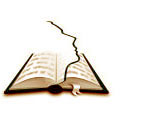|
He shall call to the heavens from above, and to the earth, that He may judge (give the sentence) His people.’
Revelation 6:17 says: ‘For the great day of His wrath is come and who shall be able to stand?’ These are the words of the prophet John and they mirror exactly the words of the prophet Isaiah in the text under discussion.
It is set out again by Paul writing to the Thessalonians ‘when the Lord Jesus shall be revealed from heaven with His mighty angels in flaming fire taking vengeance on them that know not God, and that obey not the gospel of our Lord Jesus Christ.’ 2 Thessalonians 1:7-8. ‘Our God is a consuming fire.’ Hebrews 12:29. |
 |
The brightness of His coming will slay the wicked. As the Lord comes he is surrounded by fire so that any who have chosen not to follow the Lord will be destroyed when He comes in the clouds of majesty and great glory.
How can we avoid this fate? The verse that follows, Isaiah 33:15, gives the answer. He that walketh righteously and speaketh uprightly. Only sinners will be afraid.
Jonah 2: 1,2. ‘Then Jonah prayed unto the Lord his God out of the fish’s belly, and said, I cried by reason of mine affliction unto the Lord and He heard me. Out of the belly of hell cried I, and Thou heardest me.’ Sometimes these verses are quoted to demonstrate that we have consciousness after death. Please explain! |
These verses speak of hell and, with our religious conditioning, these verses would seem to say that Jonah had died. He was now in a place of hell and torment, but he had continuing consciousness that could think about God and pray to Him, make vows to him and ascribe praise to God. The word used for hell is ‘sheol’ - the Hebrew for ‘grave’.
We can immediately see that these verses cannot be used to prove that we are conscious when we are dead.
Jonah was very much alive when these words were written. ‘And the Lord spake unto the fish, and it vomited Jonah upon the dry land. |
 |
|
And the word of the Lord came unto Jonah the second time, saying Arise, go unto Nineveh and preach…’
When we are dead we cannot praise God, we have no memory of God, and we have no conscious existence in another place.
‘For in death there is no remembrance of thee. In the grave, who shall give thee thanks?’ Psalm 6:5.
‘The dead praise not the Lord neither any of them that go down into silence.’ Psalm 115:17.
‘The dead know not anything.’ Ecclesiastes 9:5,6. |
But why does this verse use the word for grave? It is just as we use it. We might call somewhere where someone is trapped after an earthquake, ‘a hell hole’. They may be brought out alive, just as Jonah was. Or we might say of a very still place, it was as quiet as the grave.
These verses cannot be used to contend that we are conscious in death.
The following verses are taken from Isaiah 14:4-11. They are describing the overthrow of Babylon, and the fall of that mighty empire. ‘Thou shalt take up this parable against the king of Babylon, and say, How hath the oppressor ceased. The Lord hath broken the staff of |
 |
|
<< Back | Page 1 | Page 2 | Page 3 | Page 4 | More >>
[ Home ][ About Us ][ Lonely Questions ][ Contact Us ]
Copyright © 2008 deathandbeyond.org.uk |
